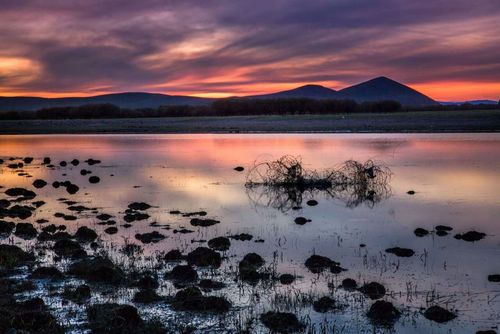Unearthing the Richness of Indigenous Knowledge: 5 Examples to Highlight
As the world continues to move towards technological advancements, it’s important to remember the richness of indigenous knowledge that has been passed down from generation to generation. The ancestral wisdom of our forefathers has provided us with infinite examples of sustainable living, biodiversity conservation, and community development.
In this article, we will examine 5 examples that highlight the importance of preserving indigenous knowledge and the impact it can have on the natural world.
1. Traditional Farming Techniques
Indigenous communities around the world have developed innovative and sustainable farming practices that rely on ecological balance. Traditional farming methods such as intercropping, crop rotation, and natural pest management allow for the conservation of soil health and biodiversity, leading to healthier food and stronger communities.
For example, in the highlands of Peru, the Quechua people use a farming technique called ‘chacra’, which involves growing crops on a series of terraces built into steep slopes. This technique has been used for thousands of years and not only provides sustenance for the community but also helps prevent erosion and deforestation.
2. Medicinal Plants
Indigenous peoples have developed an extensive knowledge of medicinal plants, which have a profound influence on human health. Traditional healers within these communities have an understanding of the properties of plants and the appropriate methods of preparations and dosages.
The Maasai people in Kenya, for instance, use a mixture of herbs and plants to relieve a variety of ailments, including constipation, fever, and coughs. The knowledge of these plants and their uses has been passed down from generation to generation and is still in use today.
3. Forest Management
Indigenous knowledge has contributed immensely to forest management. These communities have a deep understanding of the importance of forests and their relationship with other ecosystems, which has led to traditional practices that acknowledge the importance of sustainable forest use.
For example, the Kayapo people of Brazil have been practicing forest management for thousands of years. Their approach involves monitoring the different areas of the forest and using a variety of techniques to maintain a balanced ecosystem, such as controlled burning and selective harvesting.
4. Traditional Fishing Methods
Indigenous peoples have developed unique and innovative techniques for fishing that are sustainable and environmentally friendly. These methods have maintained the balance of aquatic ecosystems for centuries, providing food and income for communities while minimizing negative environmental impacts.
The Inuit people in Alaska, for instance, have developed a fishing method called ‘igluvigaq’, which involves building a platform made of ice blocks near a hole in the ice. This allows fishermen to catch fish without disturbing the environment.
5. Architecture and Engineering
Indigenous communities have a unique approach to architecture and engineering, which takes into consideration natural elements and their impact on the environment. The use of natural materials and sustainable techniques has allowed for the building of structures that are resilient and have a minimal impact on the environment.
The Maori people of New Zealand use a traditional technique called ‘wharenui’ for building their houses. This involves using a framework of wooden poles that are intricately carved and adorned with traditional designs, providing a culturally rich and sustainable housing solution.
Conclusion
Indigenous knowledge holds an abundance of hidden treasures that have the potential to contribute to a sustainable future. It’s important to recognize and appreciate the indigenous communities that have preserved these practices for thousands of years and ensure their continuity for generations to come.
By highlighting just a few examples, it’s easy to see the immense value of indigenous knowledge and the vital role it plays in creating a more sustainable future. To preserve and build upon this rich knowledge, it is imperative to support and listen to these communities as they share their immense wisdom with the world.
(Note: Do you have knowledge or insights to share? Unlock new opportunities and expand your reach by joining our authors team. Click Registration to join us and share your expertise with our readers.)
Speech tips:
Please note that any statements involving politics will not be approved.
